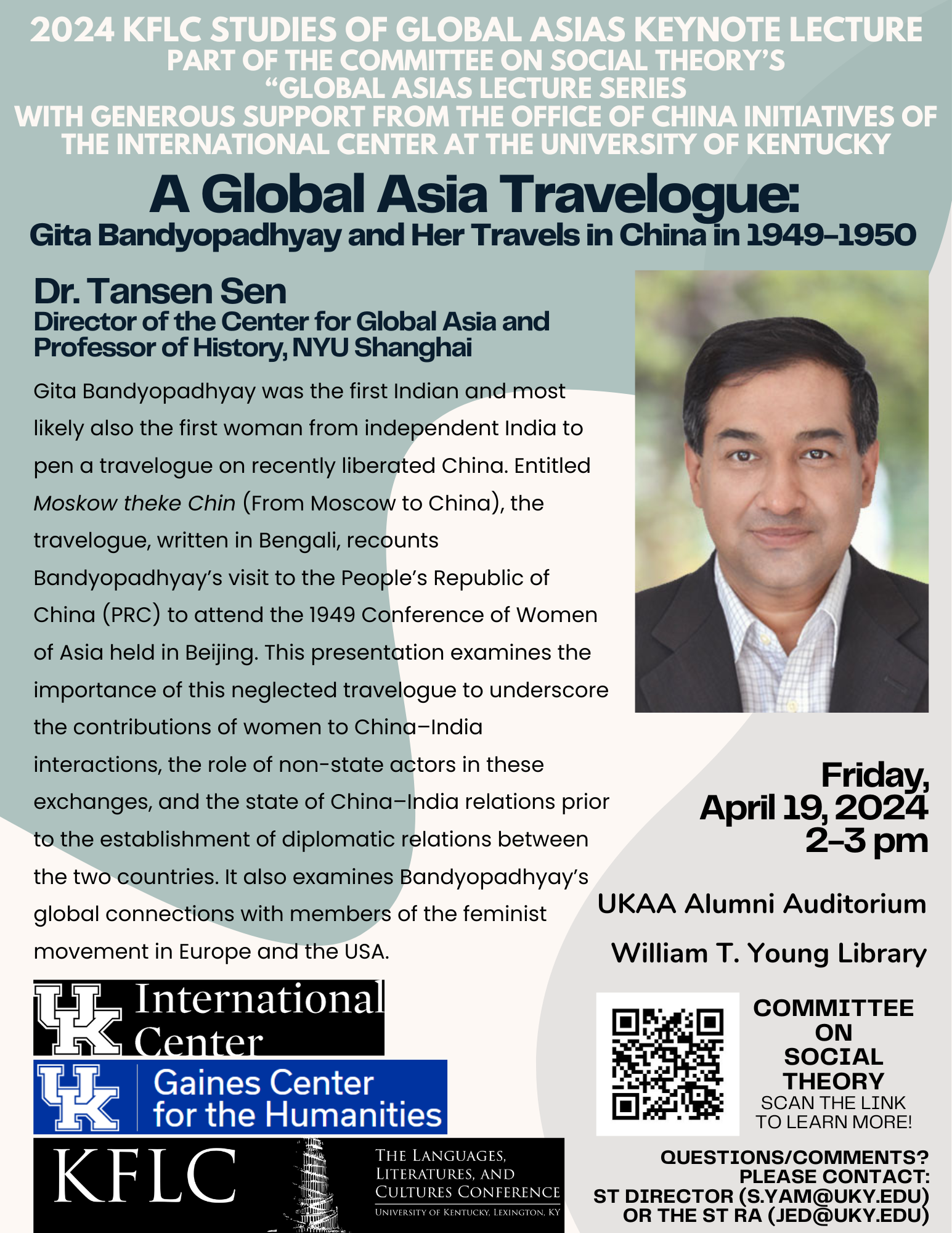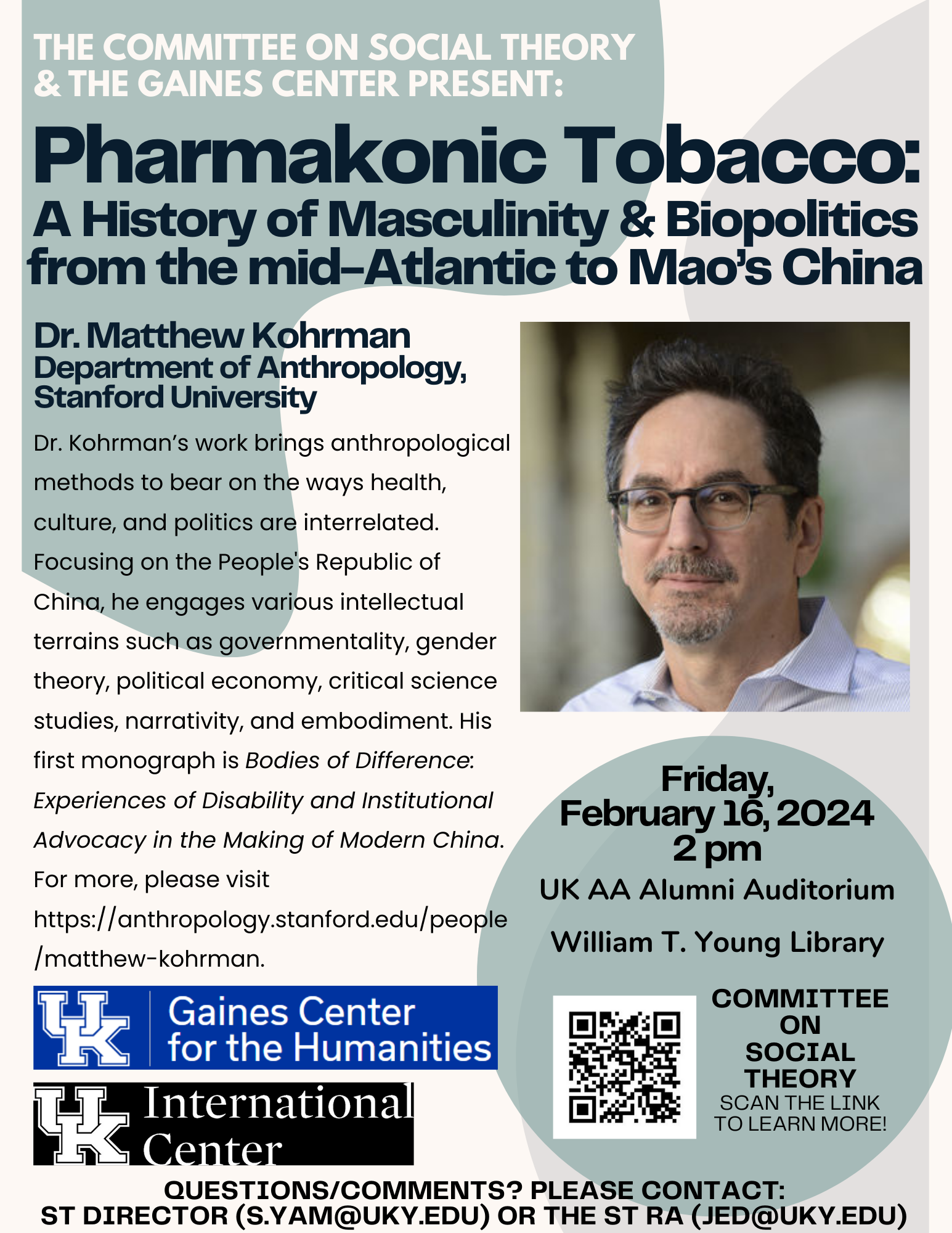A Global Asia Travelogue: Gita Bandyopadhyay and Her Travels in China in 1949-1950
Please join the Committee on Social Theory for the fourth, and final, speaker in our Spring 2024 Speaker Series on the theme of Global Asias happening on Friday, April 19 at 2 pm ET in the UK AA Alumni Auditorium at the William T. Young Library with Dr. Tansen Sen!
This series will be featuring guest speakers engaging with interdisciplinary approaches across the humanities and social sciences to address the intensified contestation about Asia in light of the shifting geopolitical dynamics in the Asia-Pacific area and globally. The framing seminar which incorporates these guest speakers, ST 690/ MCL 525/ GWS 595: Global Asias, is co-taught by Dr. Liang Luo and Dr. Charlie Yi Zhang.
Title: A Global Asia Travelogue: Gita Bandyopadhyay and Her Travels in China in 1949–50
Lecture Abstract:
Gita Bandyopadhyay was the first Indian and most likely also the first woman from independent India to pen a travelogue on recently liberated China. Entitled Moskow theke Chin (From Moscow to China), the travelogue, written in Bengali, recounts Bandyopadhyay’s visit to the People’s Republic of China (PRC) to attend the 1949 Conference of Women of Asia held in Beijing. The details about the conference, her meetings with various Chinese women, and her visits to other Chinese cities provide unique perspectives on the PRC. The travelogue also presents Bandyopadhyay’s critical views on the newly established Nehru government and demonstrates the brewing relationship between the PRC government and the leftist movement in India. This presentation examines the importance of this neglected travelogue to underscore the contributions of women to China–India interactions, the role of non-state actors in these exchanges, and the state of China–India relations prior to the establishment of diplomatic relations between the two countries. It also examines Bandyopadhyay's global connections with members of the feminist movement in Europe and the United States of America.



